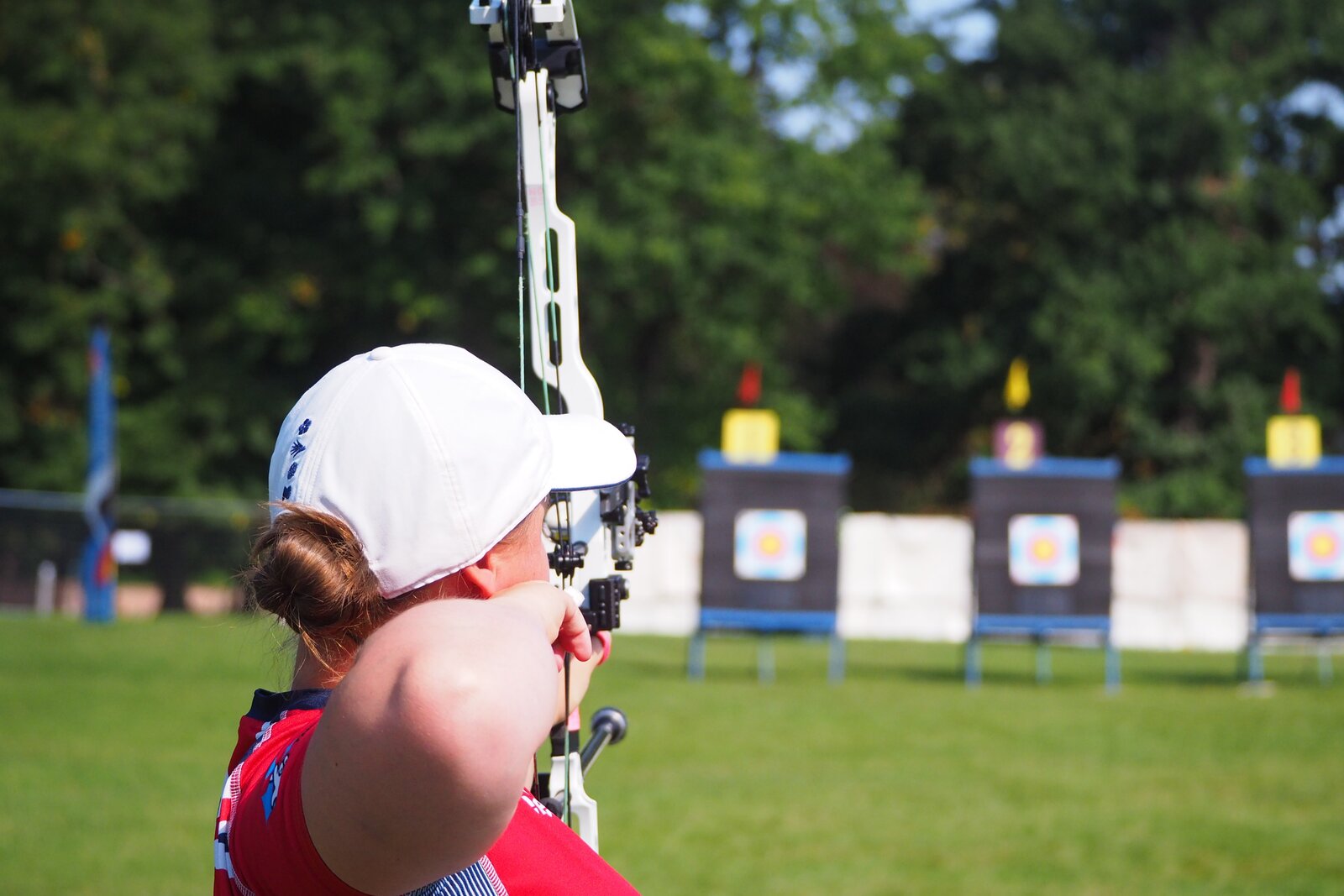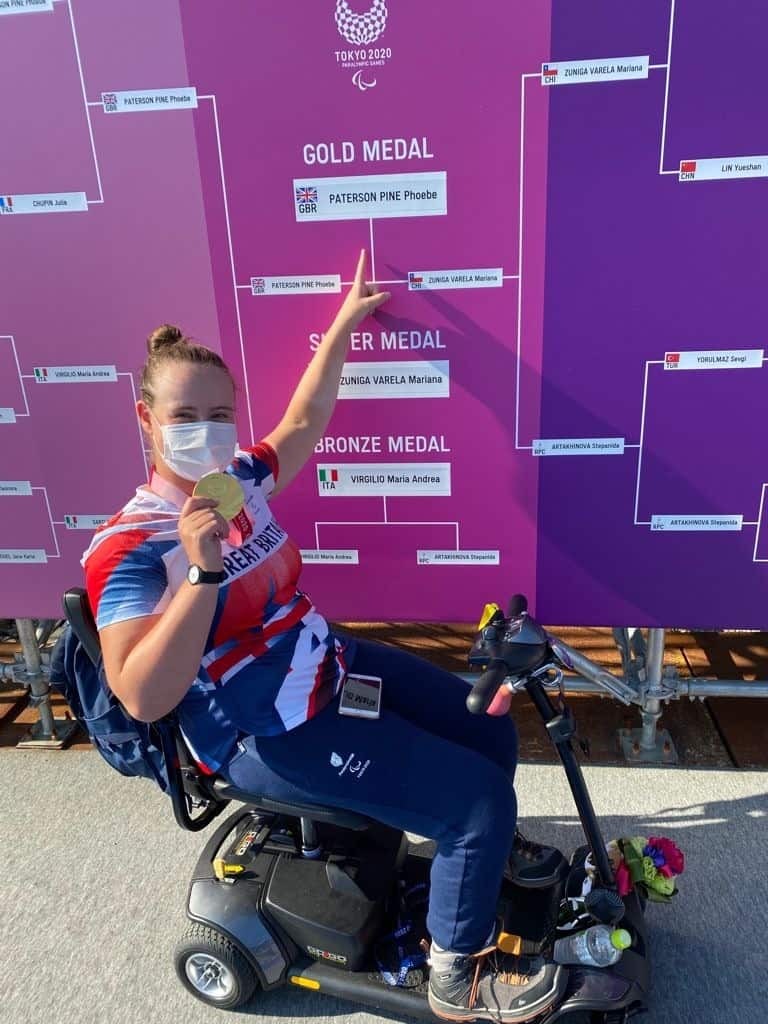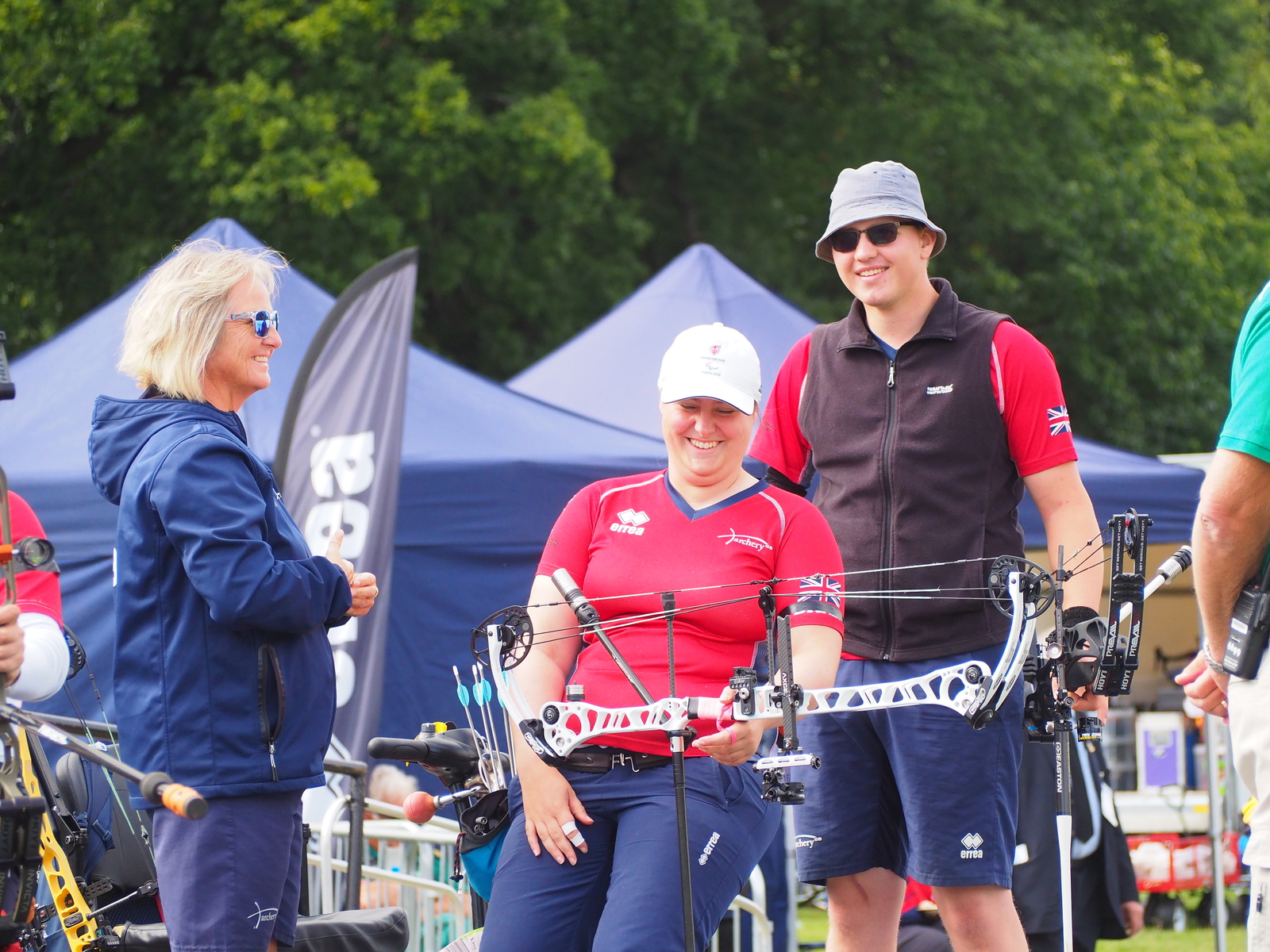Today, October 10th, is World Mental Health Day. Mental health problems exist in everyone's lives, workplaces and communities, impacting us all, and the archery community is no different. By talking about how we as individuals and as a community are affected by mental health issues, we can more easily help those who need it and support those living with it. Phoebe Paterson Pine talks about her own mental health, how being at the top of the sport doesn't make you immune, and how she's working on it.

When you’re a successful athlete, everyone thinks you’re constantly on cloud nine because it must feel so good to be winning competitions. But, for me, it’s not the case. Don’t get me wrong, I’m happy to be where I am right now in the sport – I’m Paralympic and European Champion, I’m world number one – but those titles and achievements don’t stop the dark side of my brain from pushing me under the water every now and again.
Just before the Tokyo 2020 Paralympics, I had been diagnosed with depression and health anxiety. Being in a COVID world, I had to go through more hoops to feel okay doing regular, day-to-day activities, but travelling 5000 miles to compete at my first ever Games brought a whole different set of anxieties. I had to create a full plan on how to first not get COVID, which, to my anxious brain, would be a death sentence. I also had to deal with the heightened risk of COVID during travel, and struggle to not have a panic attack every time I thought about the fact that there would be COVID cases waiting for me in Tokyo. The news was saying that the Japanese government had set up quarantine places ready and waiting to take people into complete isolation, which was my worst nightmare. Health anxiety had turned into a constant weight on my shoulders. I felt like I constantly needed to prepare myself for becoming ill or injured and became more depressed.
I wondered why me? Why is my brain doing this to me? Why am I the person that has to go to the toilets and do breathing exercises because I’ve scared myself so badly? I would have regular breakdowns when I felt like something was wrong with me. I was emotionally shutting down to the point that I didn’t feel like me anymore.
Winning gold at the Paralympics didn’t change that.
By the time I won the Games I had already started therapy to deal with the storm brewing in my head. It turns out that having a body that you don’t trust due to being disabled is quite a big catalyst.
After the Games, the only change I noticed was that my depression seemed a little lighter. I felt like I had more to me now and I believed in myself a bit more too, which boosted my confidence ever so slightly, but my health anxiety was still getting me down and imposter syndrome started creeping in.
I constantly felt like I hadn’t done it, that I hadn’t shot well enough and that someone would tell me that there had been a mistake. I had started to build up this idea in my head that every success would be followed by a terrible experience. If I felt happy then surely sadness would follow and winning the Games meant I was heading for the biggest depressive episode I had ever been through.
But that didn’t happen, which actually scared me more. If not now, then when? The constant worry weighs on you.
None of these issues exist in isolation from each other. When there are photos of you practicing and competing on the news, body dysmorphia pushes its way in. Every picture I see of myself, I don’t recognise or like my body, which leads to other issues, especially when you go the gym as much as I do. I’m only 5’3” but built like I can take down a small village. Some days it’s hard to deal with that, but I’m working on it.
I had gotten myself to a point where I completely stopped enjoying the aftermath of winning. Through therapy I’m dealing with it but it’s still there. I still need reassurance, and I still have those little doubts in my head, but I’m trying to get better.
Sport has given me an outlet to escape but winning has brought with it all these emotions and feelings that I wasn’t prepared for. I’m working on it. Now that I’ve got this spotlight on me and I’m able to be open about what my weird brain does, I want to use it to explain what it’s like and hopefully encourage others to get help.
A messy brain doesn’t have to stop you from being a brilliant archer that can kick butt. That’s exactly why awareness days like this exist, so that awareness is raised, people understand that these issues exist and there are ways to get help.
Having a mental illness doesn’t make me more or less of a person, it makes me human. And things do get better. 
The green ribbon is the international symbol for mental health awareness. All proceeds fund Mental Health Foundation's life-changing work as a UK charity dedicated to mental health. You can buy yours from the Mental Health Foundation.
You can read more about the benefits of archery on mental health here.
For mental wellbeing tips, visit the NHS' Every Mind Matters webpage where you can learn ways to manage stress, and take their Mind Plan quiz.